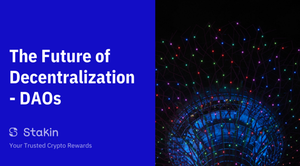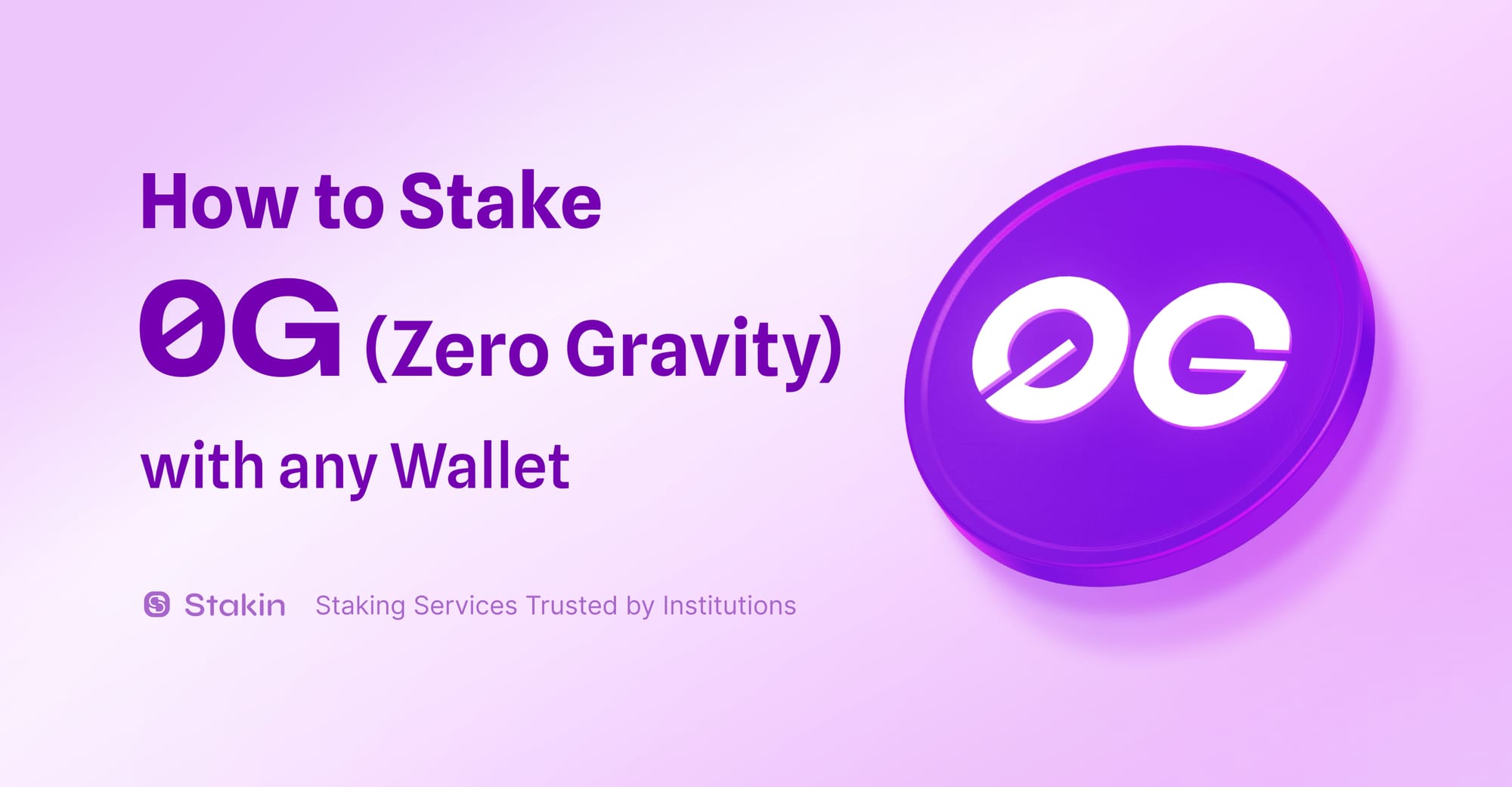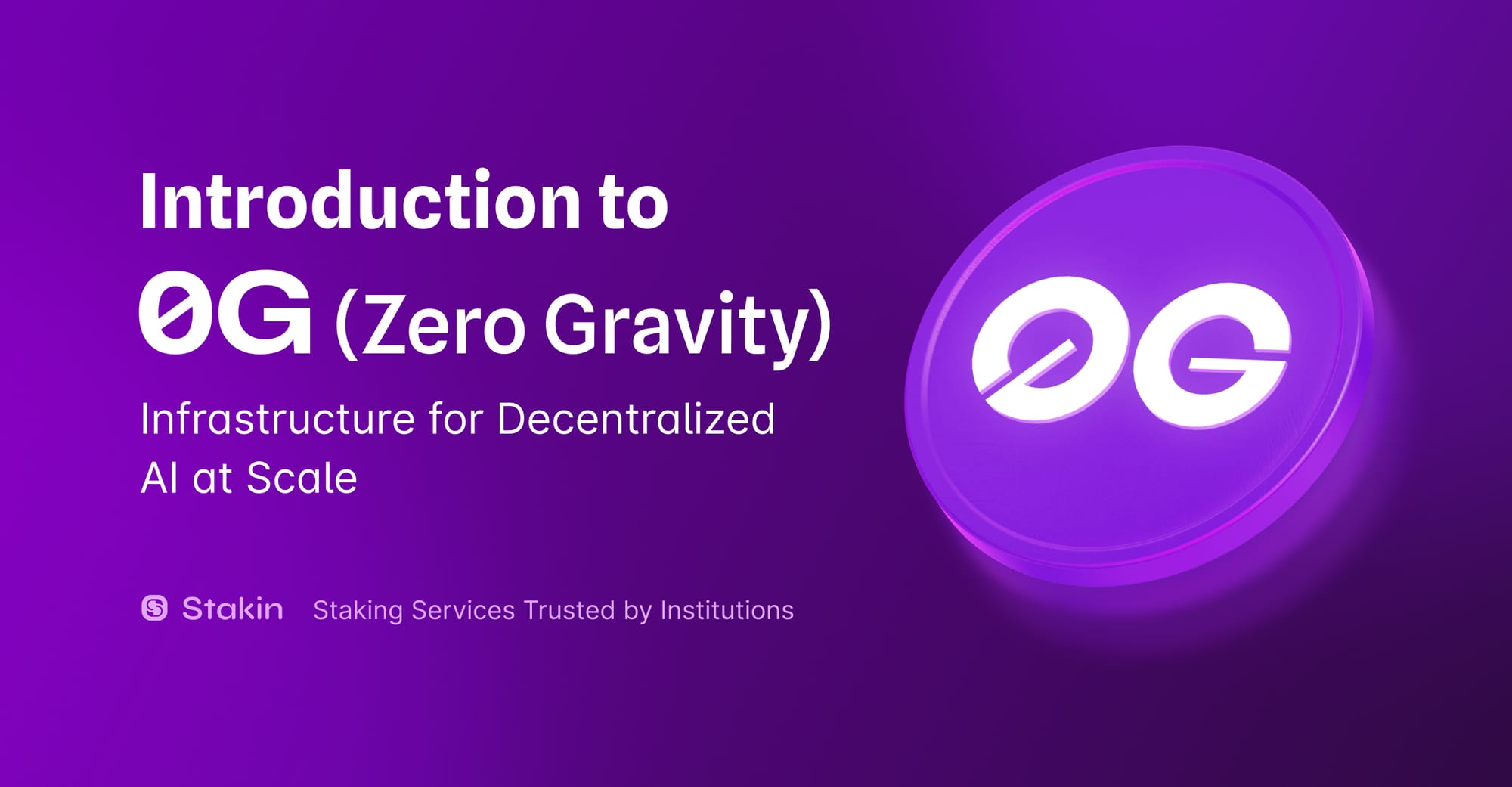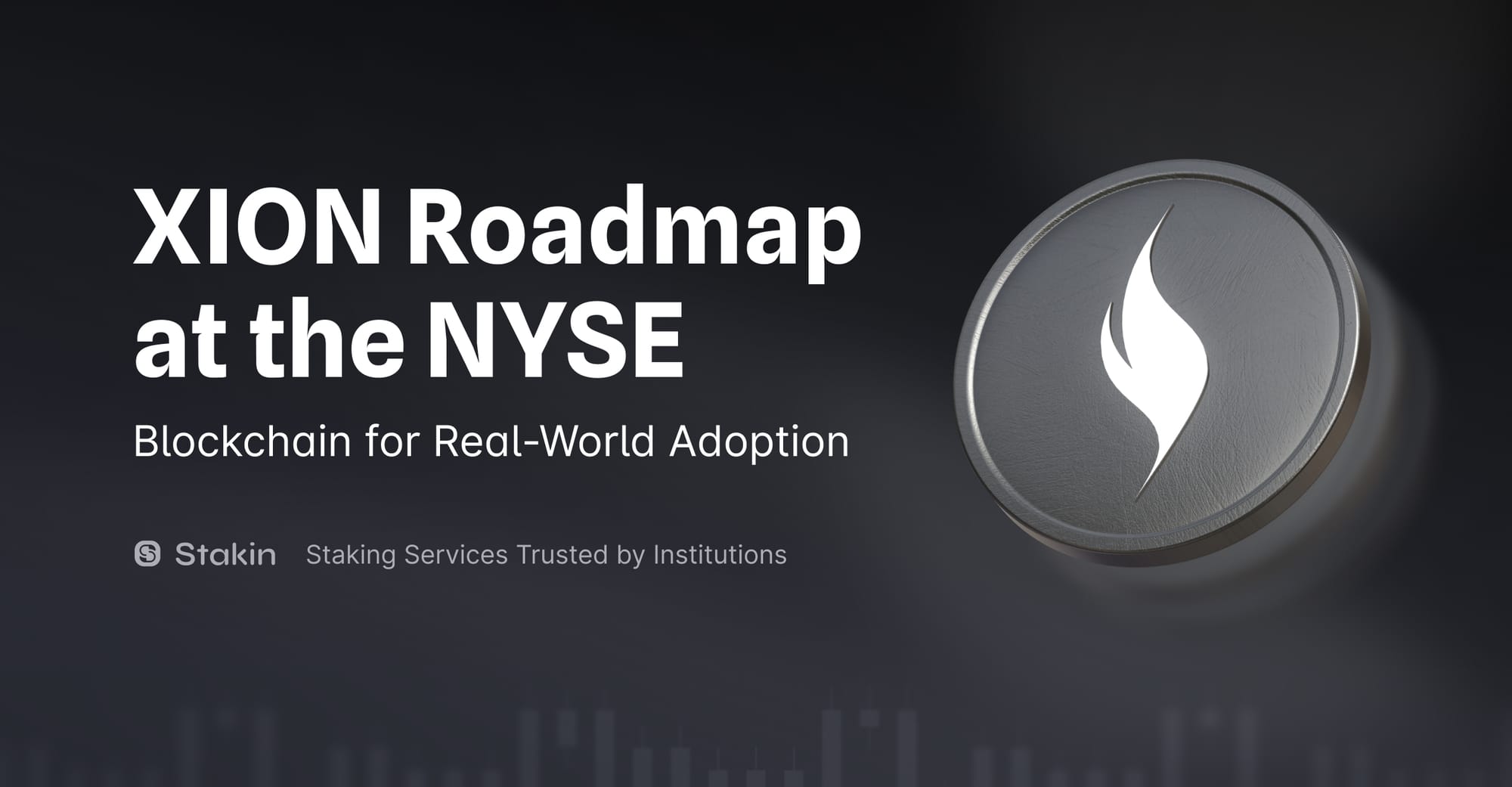Hi Readers👩💻,
Today, we’re taking a look at Decentralized Autonomous Organizations (DAOs), what they are, what’s so special about them, and what we can expect from them in the future.
Part 1 — Decentralized Autonomous Organization
Some call it one of the most successful and amazing things to ever come from blockchain technology, the DAO, a Decentralized Autonomous Organization. And in 2020, DAOs are no longer limited to the blockchain but can be implemented for easy off-chain tasks such as sending an invoice.
So, what is a DAO, and why are they so exciting? A DAO is an entity of which the data, rules, transactions, and governance all reside on a blockchain. Decisions and control are obtained through a decentralized organization among the participants of the DAO. The central aspect of a DAO is that it operates on a pre-programmed blockchain-based set of rules, that are encrypted in a smart contract. The programming allows it to function independently and autonomously, being coordinated through a consensus protocol.
Just like blockchain networks, a DAO requires a value element, such as its digital asset. It is used to exchange value, reward users, and contributors as well as attribute voting rights for the DAOs stakeholders. During the development of a DAO, once the first phase of creating and narrowing down the rules in a smart contract has passed. The second phase is the funding. During this period, the digital asset of the DAO is set.
Furthermore, by contributing to the DAO, voting rights are distributed. Once those two faces have passed, the DAO then becomes fully autonomous. By voting, decisions about the funds of the DAO and its development are made by the community. Check out the video of BlockchainCentral below, for more information about what a DAO is.
Part 2 — The DAOs Currently Out There
Many DAOs are already out there. Let’s have a look at a couple of them.
TheDAO
Some of you might have heard about this famous and first DAO project, and as you might know, TheDAO failed. In May 2016, this project started, built on Ethereum. In just a few weeks, it raised $150 million. However, the success wasn’t long-lived, as in June 2017, the DAO got hacked. The hacker got away with $70 million worth of Ethereum.
TheDAO was created to be a decentralized entity that would raise capital for blockchain, cryptocurrency, and other decentralized projects. DAO holders would have had the voting rights and the ability to direct the project’s plans. However, after the hack, TheDAO came under the attention of the US Securities and Exchange Commission for violation of federal laws. The failure of TheDAO, however, has led the way for many different and news DAOs to improve upon its concept.
The MakerDAO
MakerDAO is built to create a self-balancing stablecoin on Ethereum. It offers stability for the blockchain and is the entity behind the DAI stablecoin. The DAI is backed by USD, and its system is a decentralized platform that uses Ethereum. If the USD market is stable, so is the DAI. Because it reacts automatically to the fluctuations in the market to keep the prices stable. The MakerDAOs other asset is Makercoin (MKR). Which is used for governance of the network, as well as operation and creation of the DAI.
Dash DAO-like model
The digital asset Dash originally started in 2014 as Xcoin and was an aspect of the Bitcoin blockchain. It has undergone two name changes; however, in 2015, they finally rebranded as Dash and have kept their name ever since. At the date of writing, one DASH is worth around $85, according to third-party coinmarketcap. Its market capacity is $807.034.841, and it has over 18 million digital assets in their total supply.
Dash is peer-to-peer decentralized electronic cash, it is open-source and has its blockchain. The control of Dash is executed by a set of users who operate on the “master nodes” in the network. These validate the blockchain and act like the shareholders governing operation.
DAOstack
DAOstack was designed to catalyze the future of collaboration. The platform includes a modular smart contract framework, works on JavaScript, and has an intuitive UI that allows anyone to create and participate in the decentralized organization without extensive technical knowledge. DAOstack is often, kindly referred to as the Wordpress for DAOs. The platform enables collectives to self-organize around shared goals. DAOstack users can pick different modules to create their own DAO.
Just like other DAO platforms, there are two different digital assets: the DAO stack system and the Gen Token. The DAO stack system is called a “reputation token.” The Gen Token is used to participate in the system.
PieDAO
PieDAO is a decentralized organization whose vision is to bring market accessibility and economic empowerment to anyone on the Ethereum network. The DAO is an open community with a focus on empowering financial freedom by bringing diversification to the DeFi world.
They want to do so by providing a governance layer to a tokenized portfolio allocations. Normally, a very small group of people are able to create new investment products. However, with PieDAO anyone can participate in the creation of a tokenized portfolio allocations which can include exposure to digital and traditional assets. They have named their allocations PIEs.
MetaCartel
The MetaCartel DAO is an ecosystem of creators and operators that are building decentralized applications (DApps). The mission of this DAO is to accelerate the creation of Web 3.0 because they believe that this will make the world a richer, more equalized place. MetaCartel is active since the last quarter of 2018 and has since grown into an active community and an active, important, Ethereum contributor. Mostly, the team works on getting other early teams to the next level. They do this with grant funding and operational support, and by supporting the development of external DApps.
Aragon
Aragon is not just any DAO, it is an application and services suite that makes it possible to form new global communities. The platform counts more than 1,000 DAs created with $8M under management. Aragon’s vision is to create a digital jurisdiction; an online place where people can self-organize in a free, peaceful, sustainable, and inclusive way. In a nutshell, Aragon provides the tools for people to turn a community or cause into its own economy. They deliver basic financial tools like tokenization and offer broadly applicable templates for defining boundaries. One of their recent developments announced on the 10th of February 2020, is the Aragon Court. The application is a dispute resolution that will help communities to protect shared resources.
The LAO
The LAO is the newest DAO of the bunch, as it only just launched on April 28th, 2020. The LAO developed by OpenLaw aims to push Ethereum forwards through the possibility for people to pool Ether into a common fund and invest that ether (in the hope that this will lead to profit). The LAO is taking the first step in letting people from around the world support projects that they love.
For OpenLaw, this is just the beginning. The company’s goal is to build an ecosystem of DAOs to rebuild a “Silicon Valley” on the blockchain. The vision for this project is the hope that, when finished, there will be a permissionless ecosystem that directs funding to entrepreneurs regardless of their geographical location or their background.
Part 3 — The Potential of DAOs
Despite the hick-ups in the early start of DAOs, the attraction and development haven’t slowed down. Over the last years, we’ve seen a number of projects popping up and developers are experimenting with new governance models and approaches to organizing social and economic activity.
Back in the day, when TheDAO ran into the legal issues with the US, it said a clear boundary for DAOs that we’re out to make a profit. In fact, DAOs that are organized for profit still run into security law issues that limit their application abilities. However, OpenLaw DAO has solved these problems because it can be used to create binding legal agreements and tie them to the execution of smart contracts, including smart contracts that create and manage digital assets. By doing so, they make it possible to set-up DAOs as traditional legal entities and they can use binding agreements to transfer or perform tasks.
Non-profit DAOs such as the Global DAO help to develop companies and communities, who otherwise, might not have come off the ground. DAOs have already shown to be a great way to crowdsource capital for different kinds of projects. Raising funds, with good intentions, has been made easy thanks to DAOs. With the support of non-profit DAOs that focus on helping to build foundations of organizations, a more equal and decentralized economic system can be built.
Now, if we’re looking at things such as the data economy and DAOs. We see that where traditional data marketplaces require credit cards and business information to make a purchase, Ethereum makes it possible for anyone to join the data economy. By using the blockchain addresses as both payment mechanisms and user identity verification, it has become clear that with the help of AI, DAOs will be able to start owning, controlling, and even selling real-time data. For more on this subject, check the in-depth article here.
The Future of DAOs
In January, Matan Field of DAOstack predicted that 2020 would be the year we’re about to see a product-market fit for a DAO. To quote the top-highlight of his prediction:
“”. — Matan Field
Furthermore, The Narrative Watch podcast also aimed to state that 2020 would be “the year of the DAO”.
However, it’s easy to see that with the current pandemic situation, unstable economy, and global panic, we can’t be sure what the future of 2020 holds. And while, until now, a DAO with a perfect market-fit hasn’t been released, we’re well on the way. The basic idea of DAOs is too potent to be left behind. Some even argue that we could have DAO Governments in the future if we keep continuing to implement the newest technology and improve upon the systems.
DISCLAIMER: This is not financial advice. Staking, delegation, and cryptocurrencies involve a high degree of risk, and there is always the possibility of loss, including the loss of all staked digital assets. Additionally, delegators are at risk of slashing in case of security or liveness faults on some protocols. We advise you to do your due diligence before choosing a validator.



